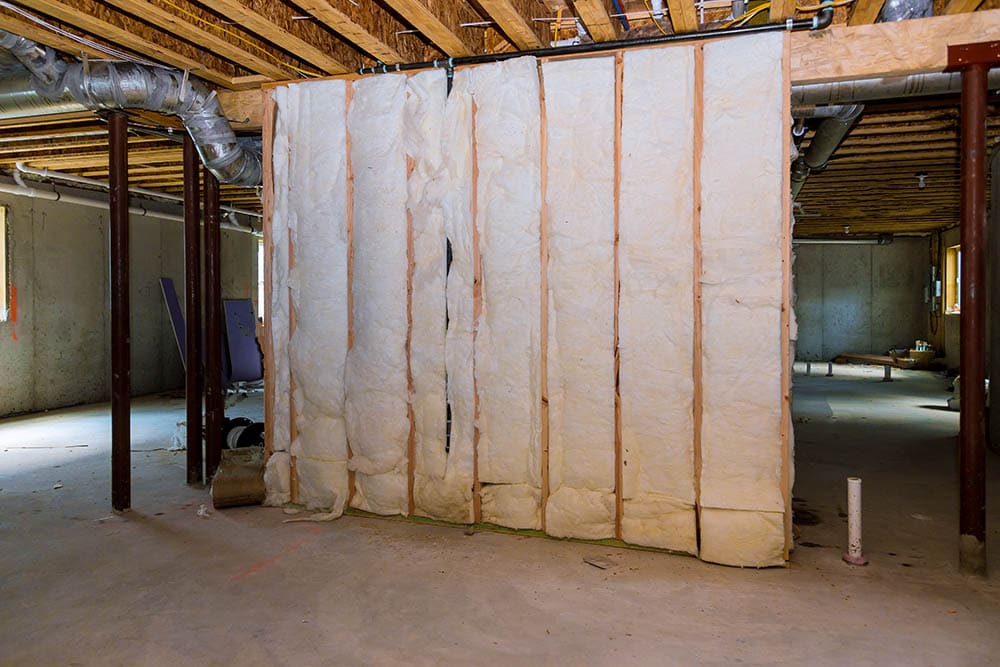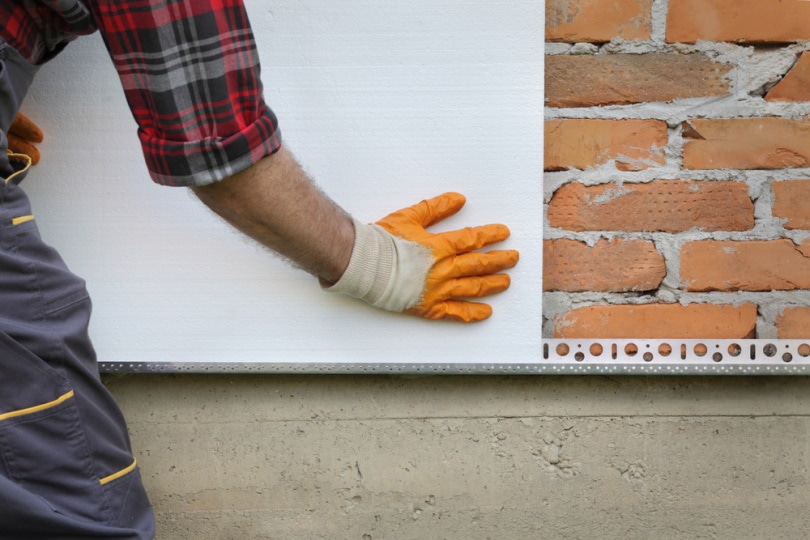Do You Need to Insulate Basement Walls Below Grade? Facts & FAQ
-
Codee Chessher
- Last updated:

Basements are an important part of any home, but unfortunately, they’re often overlooked in favor of other rooms. People simply don’t know much about them, it seems. For example, do basement walls below grade even need insulation?
It’s not strictly necessary, but insulating your walls below grade will definitely improve the wall’s thermal performance and save you money on heating and cooling. In the winter, concrete can crack in cold weather, and insulation will also help prevent that. Finally, insulating basement walls, even below grade, will make it a more hospitable space with fewer extreme temperature changes.

How Much Insulation Do Basement Walls Need?
Constructing a basement is expensive, and it can seem like a good idea to forego insulation in the walls below grade to save some cash. However, you have to balance your budget with the practical benefits and disadvantages that insulation provides. What’s the sweet spot?
To balance budget with benefits, we recommend insulating basement walls to 2 feet below grade, which is the coldest part of the wall. Going deeper than that will help, but you’ll get diminishing returns because the wall gets warmer further down. If you live in a very cold area, insulating more can help keep your home comfortable.
However, some types of basement walls should be completely insulated. If the wall is stone, the floor is earth, or you have no vapor barrier, the entire wall should be insulated. Those situations let moisture into your home, which invites mold and rot.
Yet another factor is local building codes. In most areas, newly constructed homes with basements must have the entire wall insulated.

Benefits of Insulating Basement Walls
We talked a bit about why insulating basement walls is a good idea, but let’s talk about that in more detail so you can get a better idea of the advantages.
Improves the Whole Home’s Energy Efficiency
You may not realize it, but your basement has a big impact on how comfortable the rest of your house is. Because your basement is cooler than the rooms above, it cools them passively through air circulation. This is a good thing in the summer, but in the winter, you want a nice, toasty home.
By insulating your basement walls, the entire room will retain its temperature and stay closer to the temperature of your other rooms. Because your HVAC system doesn’t have to compensate for the basement’s difference in temperature, you’ll see lower electricity bills.
Find an insulation specialist in your area, and get free, no-commitment estimates for your project.Consult an insulation expert

It Saves You Money
Not only will you save money with reduced heating and cooling costs, but your HVAC system also won’t have to work as hard. This means it won’t need to be serviced as often, saving even more money. If you consider that the system will also last longer before needing to be replaced, you save a whole pile of money over time by simply insulating the basement walls.

Comfort
If you use your basement for anything, you know that it can get uncomfortable without insulation. In the summer, it’s hot, and it gets freezing in the winter. By fully insulating basement walls, even just below grade, you can make your basement a fully livable space. Turn it into a game room, guest room, or a hangout area!

Conclusion
Basements are an integral part of many homes, but lots of folks don’t know they can confer a host of benefits when the walls are insulated. Although new builds require full insulation, older homes can enjoy the same benefits by just insulating the wall 2 feet below grade.
Featured Image Credit: ungvar, Shutterstock
Contents